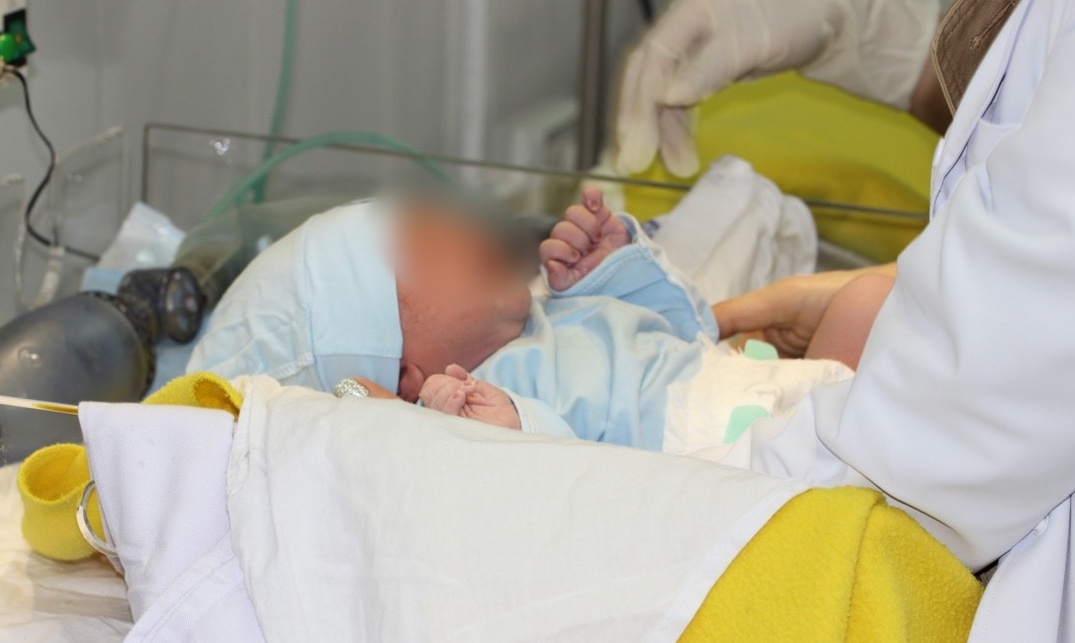Sharing on the sidelines of the 2024 Vietnam-France Obstetrics and Gynecology Conference held on October 15 in Hanoi, Prof. Dr. Tran Danh Cuong - Head of the Department of Obstetrics and Gynecology, Hanoi Medical University - said that at the Central Obstetrics Hospital, the rate of first-time cesarean section is about 50 - 60%, 3 times higher than in the year 2000. In the next birth of a person who had a cesarean section, the rate of cesarean section is almost 100%.
"The increase in cesarean sections is not due to illness or an increase in birth rates, but due to the choice of mothers and inconsistent advice from doctors. Many people think that cesarean sections are better for mothers and babies, but the truth is that cesarean sections have more complications than normal births," Professor Cuong emphasized.
According to Associate Professor Cuong, in reality, there are cases where doctors go to work on Monday morning and register for a cesarean section due to fetal distress on... next Saturday. Such a cesarean section is unacceptable.
"We need to review the current indications for cesarean section because there are complications, and cesarean section is not harmless, while natural birth has fewer complications. Books do not teach us that if we perform a cesarean section at this time, the baby will be better, if we perform a cesarean section at another time, the baby will suffer more.
But the current cesarean section is not due to the fetus being too large or the mother and baby having serious illnesses, but is completely due to abuse, with both doctors abusing it and mothers abusing it" - Associate Professor Cuong is concerned.
Mr. Cuong also said that due to "medical economics" issues, if this hospital does not perform surgery, the family will go to another hospital and there needs to be a regulation to have consensus in the indication for cesarean section in the maternity hospital system to reduce this rate.
Warning about possible medical incidents during a cesarean section, Professor Nguyen Duy Anh - Director of the Central Obstetrics Hospital - said that a cesarean section weakens the uterus for subsequent pregnancies, or makes it difficult to conceive again. Due to the high rate of repeat cesarean sections, doctors need to inform patients that the risk of placenta accreta and hysterectomy during pregnancy increases with each subsequent cesarean section.

Professor Anh called on obstetricians to counsel pregnant women and give proper advice to mothers. The indications for cesarean section for pregnant women must be very clear and strict.
Leading experts in the field of obstetrics also recommend that when there is no clinical indication for a cesarean section, a normal delivery should be recommended. In cases where there is no other indication for an early delivery, a cesarean section should not be performed on demand before 39 weeks of gestation.
According to experts, when giving birth by cesarean section, the mother faces an increased risk of hemorrhage requiring hysterectomy, anesthesia complications, cardiac arrest, venous thrombosis, postpartum infection, placenta previa, placenta accreta, uterine rupture, infertility... On the child's side, cesarean section also increases the rate of neonatal respiratory diseases, bronchial asthma, and obesity.
A cesarean section is a surgical procedure to deliver a baby through a tear in the uterus and abdominal wall. A cesarean section may be planned in advance if the patient has contraindications to vaginal delivery or may be decided during the course of monitoring vaginal labor.
According to the World Health Organization (WHO), the recommended rate of cesarean section ranges from 10-15%. When this rate exceeds 15%, it is considered medically unnecessary. In recent years, the rate of cesarean section has increased worldwide. It is predicted that by 2030, the global cesarean section rate will be 29%.
The 24th Vietnam-France Obstetrics and Gynecology Conference took place on October 14 and 15 with the participation of 2,000 delegates. At this conference, Deputy Minister of Health Le Duc Luan emphasized that in Vietnam, although the health status of mothers and children has improved, obstetric complications still have clear differences between regions and areas and pose potential risks of unsafety. Abortion and infertility are still common; reproductive tract infections and sexually transmitted diseases are still high... The leaders of the Ministry of Health believe that with the participation of leading obstetrics experts, the conference will together find the most effective solutions.










